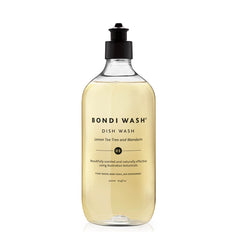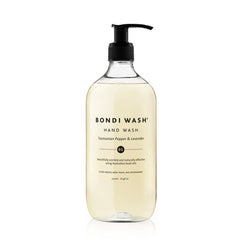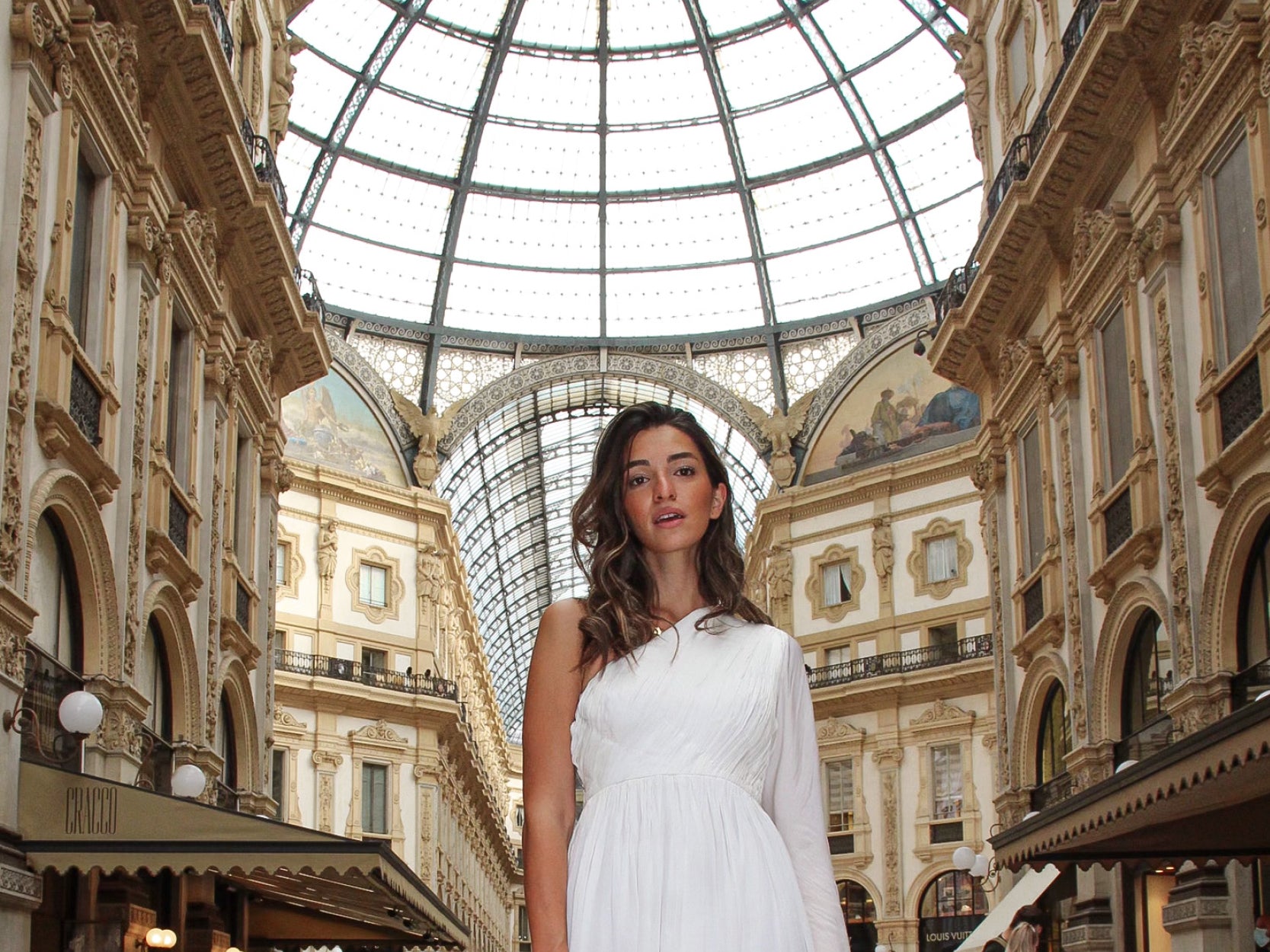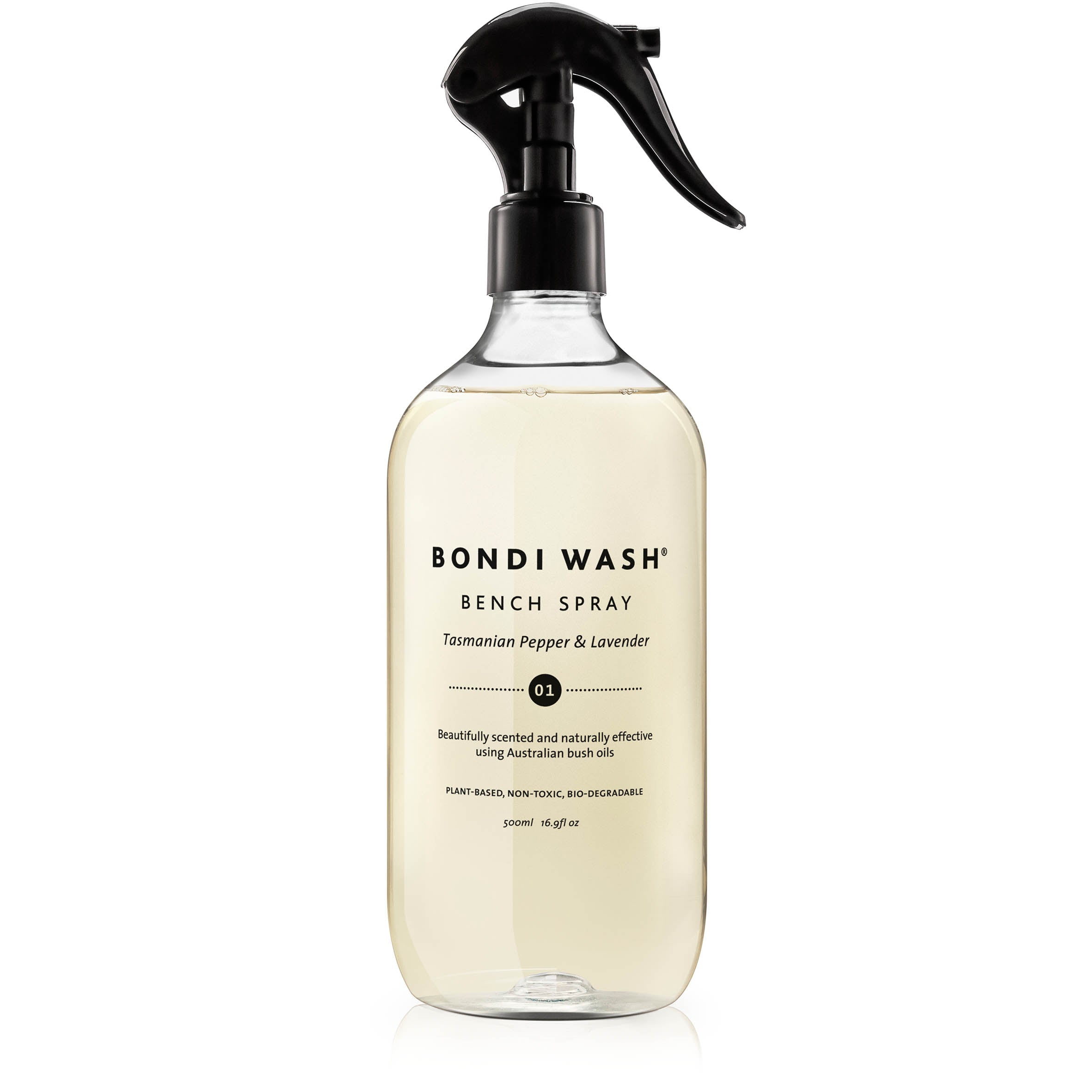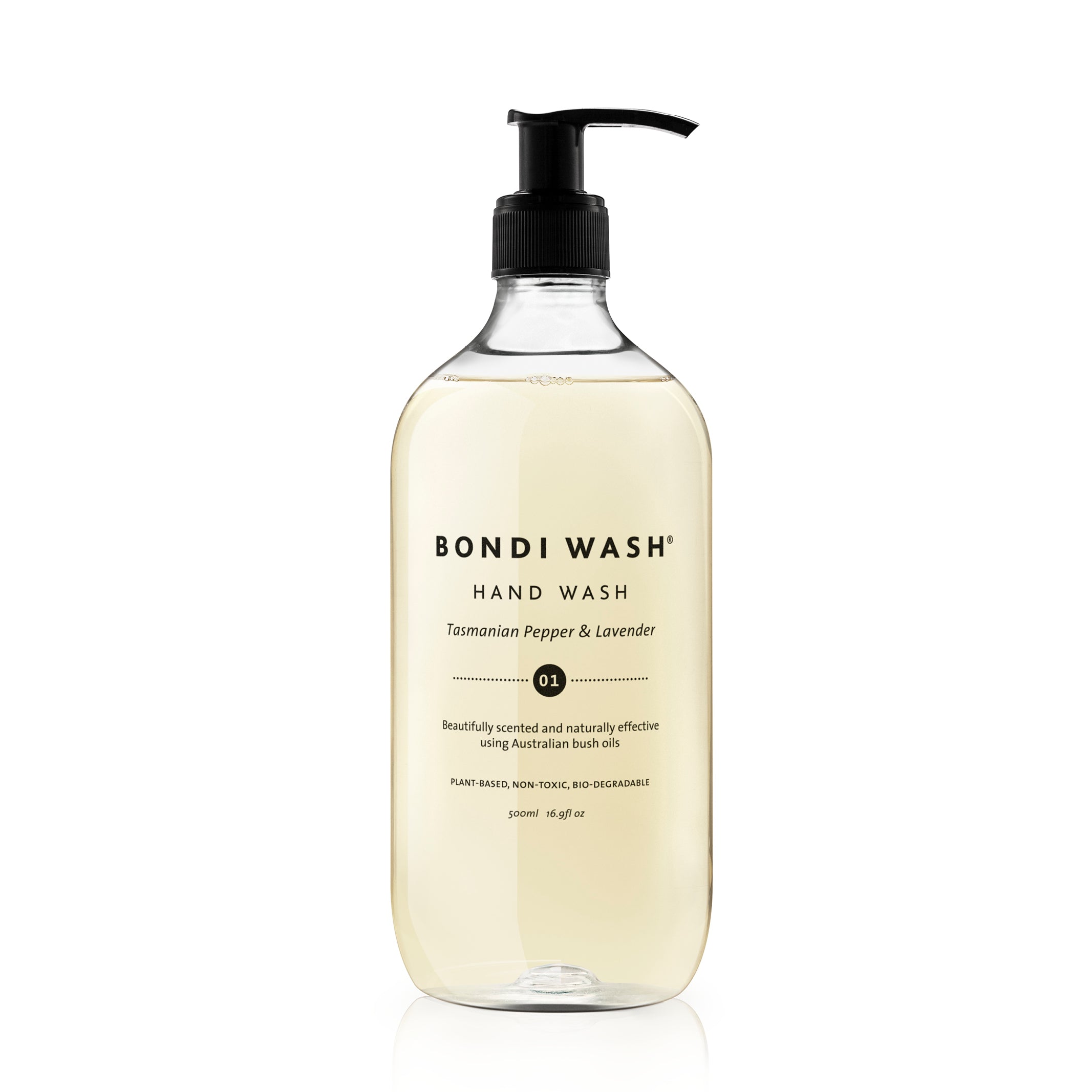As we continue to navigate a new way of living under lockdown here in Australia, our series of Letters from Lockdown explores how the global BONDI WASH team are experiencing life during a pandemic from the perspective of their own city.
Despite the adversity and uncertainty we are all experiencing, a common thread of human spirit links each story. Regardless of location around the world, each person found ways to turn a situation beyond their control into something positive.
Marija in Milan, Italy (Pictured above)
In Italy we have lived with Coronavirus for over 18 months now. Not only has it affected our collective mental and physical health, but it has impacted the very essence of our culture. No longer do we kiss each other on the cheek when we say hello or offer a hand to shake, we use the elbow bump to avoid unnecessary touching.
We no longer enjoy our daily ritual of pre-dinner ‘aperitivo’ with friends and family. Buffets laden with cheese, cured meats, olives and grilled vegetables are now served by staff or choices are presented on pre-prepared plates. Thankfully shared plates have endured, with many restaurants continuing to serve this way now that they have reopened – it is the Italian way after all!
But not all changes have been bad, there have been positives too…
Before the pandemic, companies were sceptical about staff working from home, believing it would lower productivity and affect the bottom line. Now businesses see the value in employees operating remotely, grateful for reductions in fixed overheads such as office rent and utility costs. The future for business may mean a combination of home and workplace, capitalising on the benefits of both.
When restaurants were closed, people had to cook for themselves. Even those who had never cooked before began to prepare their favourite meals, focusing on eating as healthily as possible. I t was a reflection of life slowing down, becoming more mindful. Normally Milan is a bustling, busy city with everyone rushing from one place to the next. There was little thought given to selfcare or relaxation. Restrictions forced us to slow down, leaving more space to care for ourselves and others. Suddenly we had time to check in with family and friends, to reconnect.
Many people took the opportunity to welcome a pet into the home, for company and exercise. A daily walk or run with a dog was a way to enjoy nature especially when confined inside for long times. This renewed interest in the outdoors means many Italians continue to walk from place to place where before they would have taken the metro or a cab. As a flow on effect, there is now less pollution in Milan and other big cities as people are less reliant on transport. Students now meet in parks rather than catch up at a bar or go for walks together rather than visit the shops. Takeaway is enjoyed outdoors instead of in restaurants, everyone wanting to embrace open space.
With nearly 58% of the population now fully vaccinated, life is returning to some kind of normalcy, but it has changed. A ‘Green Pass’ grants access to closed spaces such as restaurants, cinemas and large shopping malls but it’s not a perfect system yet with more work to be done. We are more conscious of how we behave around others, where we sit on the bus or how close we stand in a queue. We are no longer comfortable in crowded places, it still feels unsettling.

Sammi in Hong Kong
With thoughts of the SARS outbreak of 2003 still fresh in our memory, the people of Hong Kong adopted mask wearing early in 2020 when a case of COVID was confirmed. We knew what could happen if safety measures weren’t quickly taken.
Although seldom people dined out at restaurants, we limited contacts amongst friends and family and many people worked from home, unfortunately the outbreak took hold in June 2020. From that point everyone wore a mask, on the Metro, in the office, even hiking in the country. As the situation worsened, more people stayed at home – cooking, cleaning and taking advantage of online shopping and food delivery services. It’s everyday items such as food and basic commodities that we are buying online, the things we need from day to day.
The government introduced control measures such as social distancing, group gathering limits and rules for food service. We’re permitted to exercise outdoors without a mask but to access most public places like gyms, restaurants, government buildings and cinemas, we use a government contact tracing app. While schools remain open, lessons are limited to half-day for now.
Today 46% of our population are fully vaccinated with only five confirmed cases in Hong Kong. Signs of pandemic-fatigue are starting to show amongst our people so the government has begun to relax control measures. Hopefully we can get back to a more normal life soon, albeit with a mask.

Winnie in Taipei, Taiwan
Before May 2021, there were only a few domestic cases of COVID-19 in Taiwan so although we were asked to wear masks in enclosed spaces, we could still go everywhere as usual. We had strict border controls and quarantine policy that, much like Australian regulations, required any person entering Taiwan to isolate in selected hotels for 14 days. However mid-May an outbreak upended our way of life.
The Central Epidemic Command Center manage the control measures in Taiwan. At the moment we are in level 3 alert of 4 stages meaning indoor gatherings of more than five people and outdoor groups over ten people are banned. To discourage people from going outdoors, parks, basketball courts, national parks and gyms are also closed but some people still jog along the river while wearing a face mask.
Before the virus, few people in Taiwan cooked at home because street food was so affordable and easy to find. Restrictions meant we were no longer able to eat in restaurants so many people started to cook for themselves or use food delivery services. With more time at home, some of my friends started to post photos to social media of their cooking – cinnamon rolls, cookies and macarons. Other dishes include fried rice and a Taiwanese braised dish which is a favourite of mine, it’s pairs really well with a beer!
Ingredients
2 tsp cooking oil
6 slices of ginger
6 cloves of garlic, chopped
Spice blend bag (available from Asian supermarkets or if you want to make your own combine 5g each of cinnamon, star anise, licorice and fennel)
1/3 cup of sugar
2 chillies
2 spring onions, chopped
Chicken wings
Tofu puffs
Frozen tofu
Boiled eggs, whole, peeled
White radish, chopped
1 cup of soy sauce
4 cups of water
1/2 cup of cooking rice wine
Method
In a large pot, heat up the cooking over medium heat.
Add ginger, chopped garlic and stir-fry until aromatic.
Add the rest of ingredients.
Bring braising liquid to boil then reduce the heat to low.
Cover the pot and simmer all the ingredient over low heat for 40 minutes.
Turn off the heat and transfer the braised dish to serving plate to eat straight away.
Infection rates are still relatively small at around 10-20 each day but we have low vaccination numbers in Taiwan, a result of limited vaccine supply. Only 3% of Taiwanese people are fully vaccinated, but 39% are partly-vaccinated. The AstraZeneca and Moderna vaccines are available as well as a locally developed alternative known as MVC. Although this is considered to be safe, it hasn’t completed the phase three testing so many Taiwanese don’t fully trust it yet.

Momo in Tokyo, Japan
Even though 55% of our population have been fully vaccinated, the pandemic is still not contained and we are under an emergency declaration. Our government asks that we avoid crowded places as often as possible and that we wear a mask when we speak with others, even in restaurants. This is nothing new for us in Japan as many people were wearing masks before the virus – a way to combat dust allergies and hay fever, for other health reasons or even for fashion. Restaurants and bars in some prefectures have been asked not to provide alcohol as it seems many COVID infections can be traced to times when people have been drinking together. Even still, about 50% are still serve alcohol as there is no punishment at this stage.
Social distancing is encouraged however the trains are still very crowded. Many people are now working from home with most business conducted online.
We have had four lockdowns so far, one or two months for each. Except for the first one, restaurants and shops were still open but big events were cancelled and students studied from home. Schools are operating as normal but events are often cancelled or held on a smaller scale. With infection rates rising, the Japanese government is considering starting the new semester online which will undoubtedly cause a lot of stress. What these young people are experiencing now will likely influence their future and affect the rest of their lives.
The lockdowns have been hard but they have also added positive things to people’s lives. I spent time at the beach with friends, went horse riding with my family and ate at restaurants with open terraces. Many people welcomed a pet into their home, began gardening or growing vegetables – it became quite a trend. Exercise also became more important because everyone had shifted home. Many run or walk with family as a way to keep moving. Others camp or trek together which is a nice way for people to keep in touch with nature.
Not everyone is happy to be vaccinated here in Japan but we have access to Pfizer and Moderna. Wearing a mask and sanitising our hands is probably the most effective way to protect ourselves and our families for now.

Yinyin in Shanghai, China
In early 2020, China was the first country to have cases of COVID-19. The SARS epidemic meant our people and government were fully aware of the consequences and potential ramifications.
Before April 2020, people in cities worst affected were forced to stay at home but those in other areas did not venture outdoors either. The busiest streets in Shanghai were empty. Schools reacted quickly, implementing online teaching systems within weeks with teachers creating remote courses before the semester had even started. Companies were also fast to encourage policies so employees could work from home. T hese actions ensured the pandemic was controlled quickly with local people returning to normal lives from April 2020.
When I relocated to Shanghai in June 2020, airport security staff required all nationals to undergo a 14-day centralised quarantine in dedicated hotels. After this period of quarantine life seemed normal in Shanghai although most people still wear masks and regularly use hand sanitisers. We can eat out at restaurants, shop in supermarkets for groceries and hang out with friends on the weekend. Now, very few companies in China allow employees to work from home so most people are back in the office, commuting on the subway as before.
We use a coding system on our phones – one is required at entry to each building, showing you are ‘risk-free’. The other code tracks your itinerary across the city using the phone signal.

The government acts swiftly with every COVID case, locking down whole buildings and testing everyone once a case is reported. Each community has a temporary vaccination zone or presence on the street so that vaccinations are accessible to anyone walking by. While only Chinese vaccines are available, the vaccination rate is as high as 80% in some cities and communities, allowing us to live normally right now. We can’t travel in and out of mainland China easily due to the mandatory quarantine measures, so most expats have been unable to return home. As a result, many have decided to leave China permanently.



